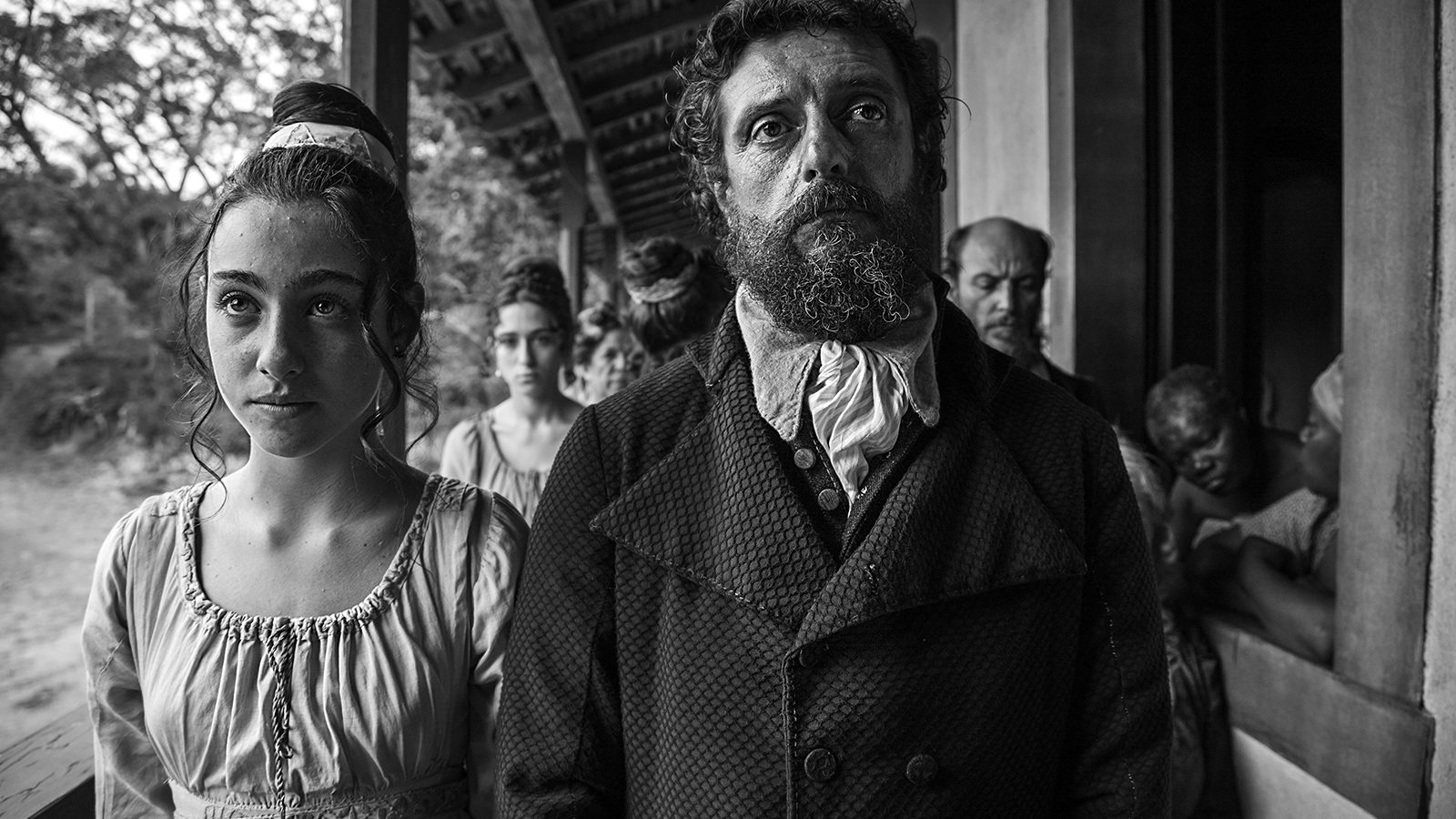
Short Take: Vazante
Daniela Thomas’s studious black-and-white historical drama unfolds in Minas, Brazil, in 1821: Portuguese plantation owner António (Adriano Carvalho), after losing his wife and child, has married Beatriz (Luana Nastas), the beautiful daughter of a bankrupt mine-owner. As António anxiously awaits Beatriz’s first menstruation, he satisfies his sexual needs with a slave, yet resumes his extensive travels once his marriage is consummated. Disillusioned and lonely, Beatriz wanders the fields in ragged dresses, like a phantom figure from the Brontës—a picture of childish rebellion, transmuted into melancholy.

In spite of its Victorian air, Vazante still caused offense to those Brazilian viewers who questioned its take on race. Indeed, while Thomas depicts the white child in all her humanity, little is granted to the slaves. In this, she clearly aims to show the colony’s pervasive brutality and dehumanization. She succeeds in places. The scenes, such as one in which naked black children play at the feet of António’s demented mother, powerfully evoke how this supposed conviviality belied their real status, as forced labor.
Yet clarity abandons Thomas halfway through her effort. Beatriz mingles with the slave children, and eventually falls in love with a boy slave who, à la Heathcliff, vows to protect her. To capture the “subtle dynamics of daily violence” in a colonial state—as Thomas described her goal to a Brazilian newspaper—would require showing Beatriz’s sweet innocence consumed from within by her race’s vile ideology. Instead, Thomas implausibly upholds the romantic trope of a doomed heroine.







